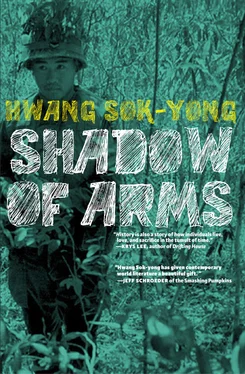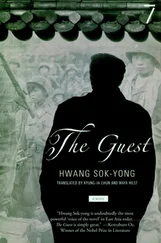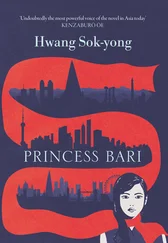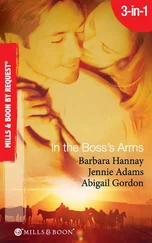“I don’t look down on them. I’m just tired and want to be left alone.”
“I didn’t mean to bother you. It’s just that a maiden among uniforms is as blindingly beautiful as a rose in an empty room.”
At these words, Hae Jong turned and looked at him. Unlike most Vietnamese men, he was well built with a strong chin. He was smiling and the tiny wrinkles gathered gently around the corners of his eyes reminded her of Jerry when he used to teach her English.
“Where do you live?”
“I board in a private home.”
“Where?”
“On Puohung Street.”
“That’s near where I live.”
Hae Jong felt a little annoyed, but also somewhat reassured. Her prim and proper days were long gone. For six months she had been living in a room rented from the family of a Vietnamese girl she worked with at the PX. On weekends she went out to clubs or to the beach with an American civilian administrator who came to the house to call on her friend, Chin Pei. Sometimes she slept with them. But, of course, she did not take money. Instead, PX vehicles would drop off ration-controlled items at Chin Pei’s house. Chin Pei’s father would sell the goods, for a little commission, at three times the original price. Hae Jong changed her profits into military money orders and saved them.
The money orders with their eagle imprints were as good as dollars everywhere in the world where there are American troops. Hae Jong needed money. Back in Korea waiting for her return were her mother and two younger siblings, who had been eking out a precarious living running a hole-in-the-wall shop in a small town. Perhaps she would never live with them again. Probably she would go back to Uijeongbu or to the Dongducheon army base. She might buy a small club, or run an inn. Who knows, she might even cross the ocean to James’s country.
Hae Jong often suffered from insomnia. In the beginning she drank bourbon and coke. Then Chin Pei’s father introduced her to a more effective sedative. On days when he returned home after selling PX goods, he always hopped up onto a wooden bunk on the back porch cradling a hemp cushion in his arms. His old wife would wait on him, bringing his pipe, and while the two smoked they looked like the happiest couple in the world.
From the start she knew that the stuff burning in the bowl of the long pipe was not tobacco. They took a golden brown clay-like substance out of a plastic pouch and rolled it into balls in their palms, placed it on a beer bottle cap and cooked it over charcoal, then emptied the contents into the pipe. The smell of burning opium reminded her of burning hay, not at all unpleasant. Their eyes became distant and dreamy and their fingers limply swayed.
At their suggestion, Hae Jong had tried a pipe in her room. It felt at first like her joints and spine were melting away. Then the bed began to fall and it kept falling downward endlessly. It was a calm darkness, bottomless and boundless. It was a journey like that of a single reed swept away on the waves, caught on and then broken free from obstacles and riding the crest of strong waves, jolting against this and that as it drifted onward, then finally floating lazily over the quietly rippling surface of a broad lake.
Those trips took Hae Jong away from Vietnam and Uijeongbu. From time to time she went on them with clerks she knew from work. Worn-out soldiers often indulged in smoking opium, which they found much more satisfying than marijuana. Opium was perfect for those soaked monsoon nights when steamy rain fell all night long. Maybe opium was just the right thing for the torrid climate of Vietnam, with its insects and lizards. Smoking raw opium was much slower than injecting the refined white powder mixed with distilled water into your veins, but it was also less dangerous. The heroin came from Vientiane and Cholon while the raw opium came from Burma and the frontier with Laos. In the Central Highlands of Vietnam there were high hills where poppy fields stretched out for miles.
The Turkish baths and most of the hotels in Da Nang offered opium dens, and the same was true of many of the military barracks. Any Vietnamese could buy opium in the back alleys of the old market in amounts ranging from a matchbox full to a slab as big as a candy bar. The price of heroin, according to the GIs, was one-tenth of the stateside price. Not long before, an officer had discovered a GI blown away from smoking heroine in the barracks. His report was turned over to PX security, who tracked the scent back to Chin Pei’s house, where MPs searched Mimi’s room. In her closet they found opium and a pipe.
The security officers treated the case with some caution, for Mimi, after all, was a temporary civil servant of the American government. Had she been Vietnamese they would have turned her over to the national police and she would have forfeited all pending salary and severance pay. But Mimi, being an alien as well as a beauty, got off with just being fired and having the Korean embassy notified that she had lost her job and thus her right to remain in Vietnam. The embassy had ordered her immediate departure, but she had stayed past the deadline and was now subject to deportation.
The incident had occurred during a time when Pham Quyen was paying occasional visits to Chin Pei’s house, and Hae Jong decided, instead of giving up this stepping stone, to use him to help her get back on her feet. Major Pham Quyen was one year older than she, and not selfish or immature like most Americans. Most of all, she came to realize that he, like herself, had reached a point where he was a man without a nationality. Yes, the two of them were like lost children, launched from either end of the Asian continent and now bobbing aimlessly like untethered buoys.
Hae Jong sliced off little pieces of the ham and egg with the edge of her fork. The bitter taste of the unsweetened iced tea slowly sharpened her dull senses. She opened the shutters wide. The light pouring out of the Hotel Thanh Thanh made the leaves of the trees lining the street seem green and fresh. As always, gunfire could be heard now and then in the distance. But to her it sounded like sound effects on the radio. She settled deep into one of the chairs and gazed out the window at the trees. The cool wind off the bay was pushing the shutters, making them creak. An approaching vehicle could be heard, then came a loud screech as it braked suddenly, followed by a motor revving and the sound of it hurriedly pulling away.
Without getting up to look outside, she knew it had to be him. She sat facing the front door, holding her head high, picturing his footsteps — those dusty jungle boots treading over the carpet, then up the stairs, first floor, second, third, then down in the hall in a single breath and finally he was there knocking on the door. Without getting up she said to come in. Pham Quyen, taking off his hat, came up to Hae Jong and kissed her lightly on the lips. His mouth smelled of cigars and alcohol. She grabbed a handful of his hair in her hand and, as with a child, playfully tugged it.
“Whose side are you on, huh? Tell me. The general’s?”
Pham Quyen worked his hair loose and then grasped her hand and rubbed it against the coarse stubble on his unshaved chin.
“I’m on my side. Nobody else’s.”
“Just like me.”
She gently fondled the major’s chin and cheeks with the hand he was holding in his own.
“But. . I’d like to be on your side. We’re the only ones with no allies.”
Pham Quyen buried his face in Hae Jong’s full breasts.
“Were you busy?”
“Very. We’ve been out to An Diem.”
“Where’s that?”
“Ah, that’s a phoenix hamlet, a new life village.”
“Why don’t we go live there, too?”
In a voice mimicking that of Butler, Pham Quyen said, “When the new generation is born, we’ll go live there. For that will be a village of eternal peace. Well, what have you been up to for the past two days?”
Читать дальше












